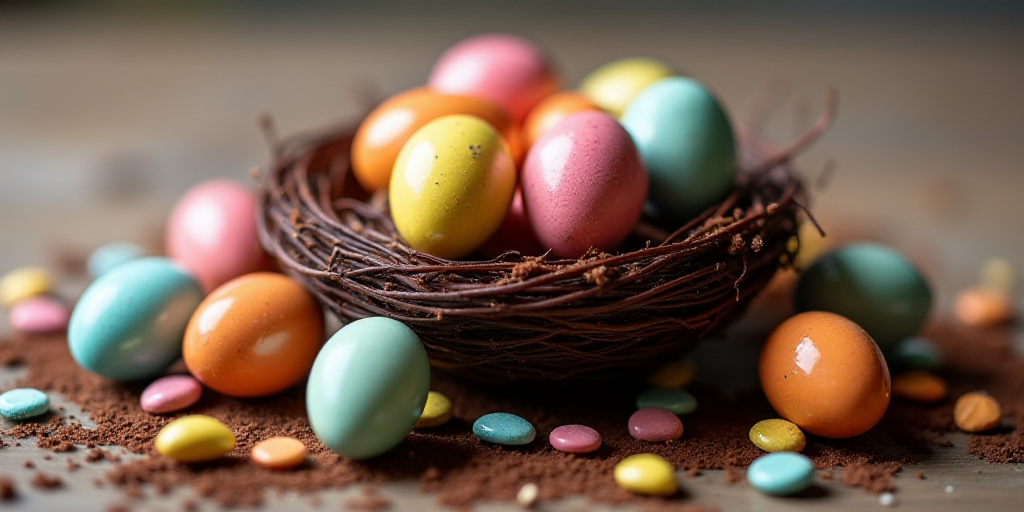Introduction to Easter Eggs: More Than Just a Chocolate-Filled Tradition
While giving Easter eggs today may seem like a simple child-focused custom with plenty of chocolate, it’s actually a rich tradition steeped in history and symbolism. The egg represents life, fertility, and renewal, with its presence during Easter having deep roots that intertwine pagan and Christian traditions. In many cultures, eggs marked the beginning of spring, but with the arrival of Christianity, they took on a new meaning: the resurrection of Christ.
Easter Eggs: A Family-Friendly Tradition
Today, Easter eggs serve as the perfect excuse to spend quality time with family, spark children’s creativity, and enjoy a sweet activity that bridges generations. Below is a simple recipe for making chocolate-filled eggs, perfect for gifting or hiding in an exciting Easter egg hunt.
Chocolate-Filled Easter Eggs Recipe
- Ingredients:
- Milk or dark chocolate
- Chocolate molds (Easter egg-shaped)
- Fillings of your choice (e.g., marshmallows, ganache, or candy pieces)
- Instructions:
- Melt the chocolate according to package instructions.
- Fill each egg mold halfway with melted chocolate, then add your chosen filling.
- Top off the mold with more melted chocolate, ensuring the filling is fully covered.
- Allow the chocolate to set in the refrigerator for about 1-2 hours.
- Once set, gently remove the eggs from the molds.
Alternative: Decorated Eggs Without Chocolate
If you prefer a more artistic activity, consider emptying real eggs using a pin, washing them, and letting them dry. Then, paint them with edible paints, natural colorants, or non-toxic plumones. These decorated eggs are ideal for hiding, gifting, or simply adorning the Easter table.
Key Questions and Answers
- What is the history behind Easter eggs? Easter eggs have roots in both pagan and Christian traditions. In many cultures, eggs symbolized the start of spring. With the arrival of Christianity, they came to represent Christ’s resurrection.
- Why are Easter eggs significant? Easter eggs symbolize life, fertility, and renewal. They serve as a bridge between pagan spring celebrations and Christian beliefs surrounding Easter.
- What are some ways to make Easter eggs? You can fill chocolate eggs with various treats or create decorated eggs using real eggs and edible paints.






